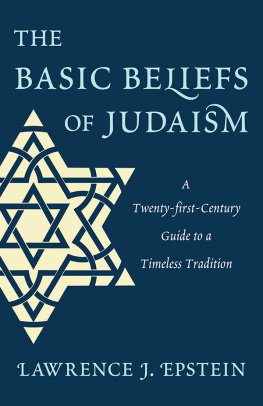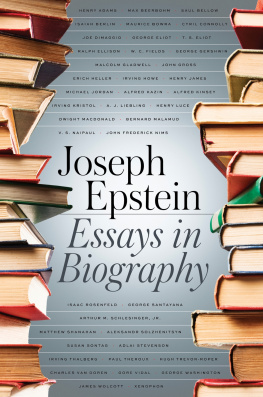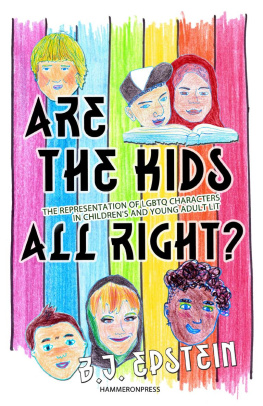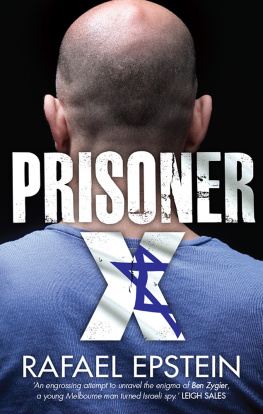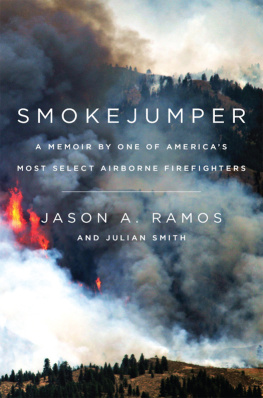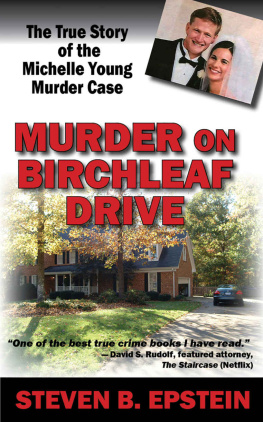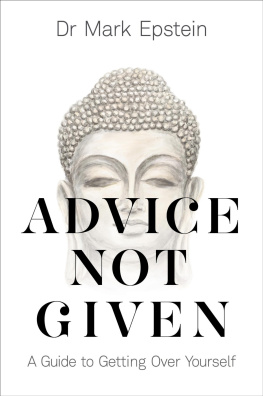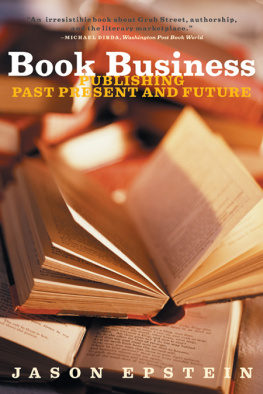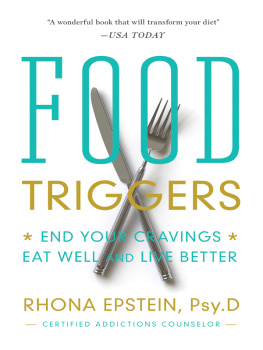Jason Epstein - Eating: A Memoir
Here you can read online Jason Epstein - Eating: A Memoir full text of the book (entire story) in english for free. Download pdf and epub, get meaning, cover and reviews about this ebook. year: 2009, publisher: Alfred A. Knopf, genre: Home and family. Description of the work, (preface) as well as reviews are available. Best literature library LitArk.com created for fans of good reading and offers a wide selection of genres:
Romance novel
Science fiction
Adventure
Detective
Science
History
Home and family
Prose
Art
Politics
Computer
Non-fiction
Religion
Business
Children
Humor
Choose a favorite category and find really read worthwhile books. Enjoy immersion in the world of imagination, feel the emotions of the characters or learn something new for yourself, make an fascinating discovery.

- Book:Eating: A Memoir
- Author:
- Publisher:Alfred A. Knopf
- Genre:
- Year:2009
- Rating:3 / 5
- Favourites:Add to favourites
- Your mark:
- 60
- 1
- 2
- 3
- 4
- 5
Eating: A Memoir: summary, description and annotation
We offer to read an annotation, description, summary or preface (depends on what the author of the book "Eating: A Memoir" wrote himself). If you haven't found the necessary information about the book — write in the comments, we will try to find it.
Eating: A Memoir — read online for free the complete book (whole text) full work
Below is the text of the book, divided by pages. System saving the place of the last page read, allows you to conveniently read the book "Eating: A Memoir" online for free, without having to search again every time where you left off. Put a bookmark, and you can go to the page where you finished reading at any time.
Font size:
Interval:
Bookmark:
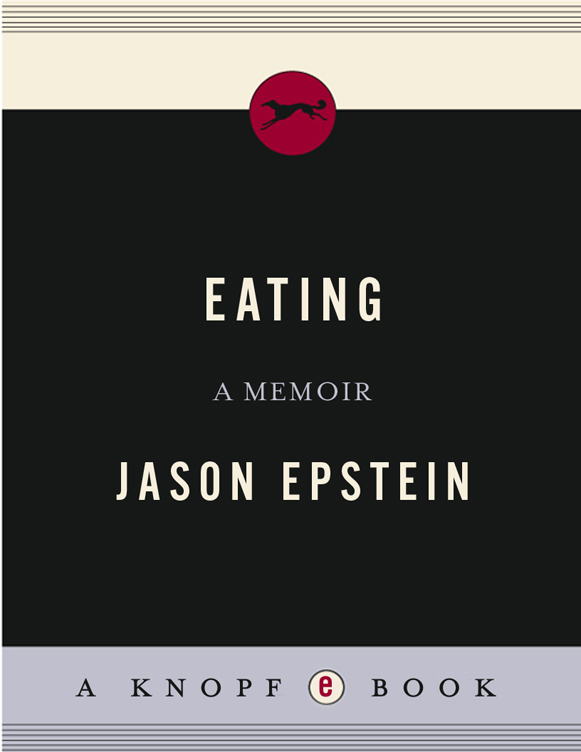
ALSO BY JASON EPSTEIN
Book Business: Publishing Past, Present, and Future
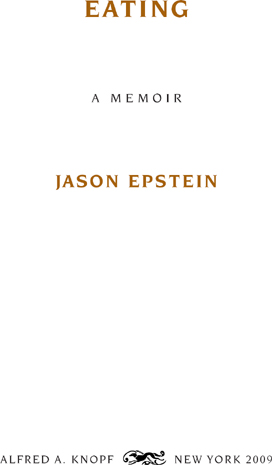
Gratitude to the Unknown Instructors
What they undertook to do
They brought to pass;
All things hang like a drop of dew
Upon a blade of grass.
W. B. YEATS
ONE
TWO
THREE
FOUR
FIVE
SIX
SEVEN
EIGHT
NINE
TEN
ELEVEN
I greatly admire Michael Pollan for his brave campaign to detoxify the American diet, but I lack the puritan fiber to be a true disciple. Of course I worry about the personal and environmental hazards that he and others have identified, and I mean to avoid them. Often I do, but not always, for though my will is strong my temptations are stronger, as they were on a lovely late-summer day recently on eastern Long Island at the height of the blueberry season.
With Michael Pollan in mind, I promised myself that this year I would not make a blueberry pie with its simple sugars, animal fats, and refined flour, as I had been doing for years at blueberry time, which coincides with my birthday. This year, as always, my children and grandchildren were coming from far away to celebrate the occasion, and that morning I stopped at the Pike Farm Stand to pick up some vegetables for dinner: tomatoes, sweet corn, cauliflower, and so on. I included two and a half quarts of blueberries, just the amount for a pie, but vowed not to pour them into a bowl, as I had done on so many previous birthdays, and mix in a cup or a little more of sugar, some lemon juice, or, better yet, the zest, and enough powdered cinnamon so that its faint aroma rises as the pie bakes, and then shower the mixture with arrowroot to hold the juice without making the berries gummy, as cornstarch does. On previous birthdays I would roll out on a marble slab two very thin sheets of the simplest pastry, the one for the bottom slightly smaller than the one for the top. To make the pastry, I cut a quarter-pound of unsalted butter in the food processor into two and a half cups of all-purpose flour with a little sugar and less salt, until the butter was incorporated but still a little lumpy. Then very carefully I added a half-cup of cold water a little at a time until the dough began to form. Though most cookbooks suggest letting the dough rest awhile to relax the gluten, I have never found this step necessary. I fitted one sheet of pastry into a black ten-inch pie tin with holes in the bottom, poured the filling onto it, and topped the berries with the other sheet, into which I poked a few slits, then sealed the edge and brushed the top with egg wash. After forty-five minutes or so in a 375-degree oven, the egg-glazed pie with its rivulets of blueberry syrup would be ready. But this year I vowed to serve the blueberries plain, or perhaps with a little crme Chantilly and a plate of cookies.
Instead I made a pie. I served it still warm beneath vanilla ice cream hand-cranked by my friend Billy Leonard in his old White Mountain freezer. This followed a dinner of ripe local tomatoes and fried chicken from Sal Iaconos farm, with a bowl of steamed cauliflower picked that morning. I let the glorious cauliflower speak for itself, with neither salt nor butter.
On the other hand, I would not dream of making the French toast that my daughter, Helen, recalled when I asked recently about her childhood culinary memories. This monstrous concoction I learned to make when I worked many years ago in the kitchen of a boys camp in Maine, from a cook named George who worked winters in a logging camp. He showed me how to dip a thick slice of homemade pain de mie in pancake batter with a little extra baking powder, fry it in deep fat till it puffs, browns nicely, and forms a lacy fringe of fried batter, dip it in a mixture of sugar and cinnamon, and cover it with maple syrup. I mention this deadly pleasure here as temptations outer boundary. No one who reads this book should think of going near it.
I began cooking as a child as other children of my generation toyed with chemistry sets or electric trains. I remember reading Irma Rombauer when I was ten or so with the same curiosity that I read Kipling and Jules Verne. My mother had little interest in cooking, and my father none at all, so I was free to amuse myself in the kitchen without getting in their way. Later, I worked a bit in restaurants, where I picked up fragments of technique and jargon and began to think of myself as a cook long before anyone else might have agreed. As readers of this book will see, I prefer plain cooking. I dont bother with foams, complex emulsions, or exotic ingredients, but let each ingredient speak for itself, often with the help of herbs, spices, and wine. I am a serviceable cook. Friends like what I serve them and come back for more. This gives me pleasure.
Recipes are approximations, starting points. I learn usually by failing the first time, then discovering where I went wrong, then trying again, and so on, until the basic preparation becomes second nature. Then I vary it, as I plan to do tonight with swordfish in a spicy marinara, an easy dish to make for ten or twelve people. I make the marinara early in the day, and sear the fish quickly at dinnertime in olive oil, and top it with the sauce just before it goes to the table. For the marinara tonightactually a kind of puttanescaIm thinking of mashing in some fresh sardines if I can find them, a Sicilian touch, along with the pine nuts and raisins that are already in the sauce. I wont risk the whole pot of marinara, but try a cupful with only a bit of sardine. It may not workthe sardine may be too strong, may squelch the lively marinarabut its worth a try. When I made this the first time, I let the sauted swordfish sit for a while in the marinara, with the result that the sauce, which had been fairly tight, became watery and the swordfish dry.
The value of writers like Michael Pollan, whom every cook should read, is that they suggest limits which we may respect or ignore as we choosebut at the extreme they define the reality by whose rules we succeed or fail, live or die. I look forward to next years blueberry season, and now that apple season is here I may bake a tarte tatin now and then; otherwise, except for special occasions, Ill skip dessert.
In this book, when I recommend olive oil I mean extra-virgin unless otherwise indicated. There are many types of extra-virgin oil, and many shops let you taste before you buy. Take advantage of this opportunity. Fine-quality oils come in many flavors and textures, from subtle to aromatic, from gentle to powerful. As with wine, let your taste be your guide.
My thanks to:
An incomplete list of my instructors, in no particular order, includes Michael Field, Elizabeth David, Julia Child, Alice Waters, Daniel Boulud, Irma Rombauer, Maida Heatter, Frankie Pellegrino, Patrick OConnell, Fernand Point, Rick Moonen, Julia Reed, Mario Batali, Wolfgang Puck (whose original Spago, with its bare pine walls and Milton Berle always in the corner, is dear to my memory), Jol Robuchon, Mike Anthony, Buwei Chao, Lou, Marie, and Sal Di Palo, Mark Russ Federman, Alice Toklas, Richard Olney, Paula Wolfert, Diana Kennedy, Martin and Adela Garcia, Sheila Lukins, Pierre Franey, Charlie Palmer, Eddie Schoenfeld, and that centuries-long procession of unknown cooks and bakers from whom my teachers and their teachers learned their craft.
Font size:
Interval:
Bookmark:
Similar books «Eating: A Memoir»
Look at similar books to Eating: A Memoir. We have selected literature similar in name and meaning in the hope of providing readers with more options to find new, interesting, not yet read works.
Discussion, reviews of the book Eating: A Memoir and just readers' own opinions. Leave your comments, write what you think about the work, its meaning or the main characters. Specify what exactly you liked and what you didn't like, and why you think so.

